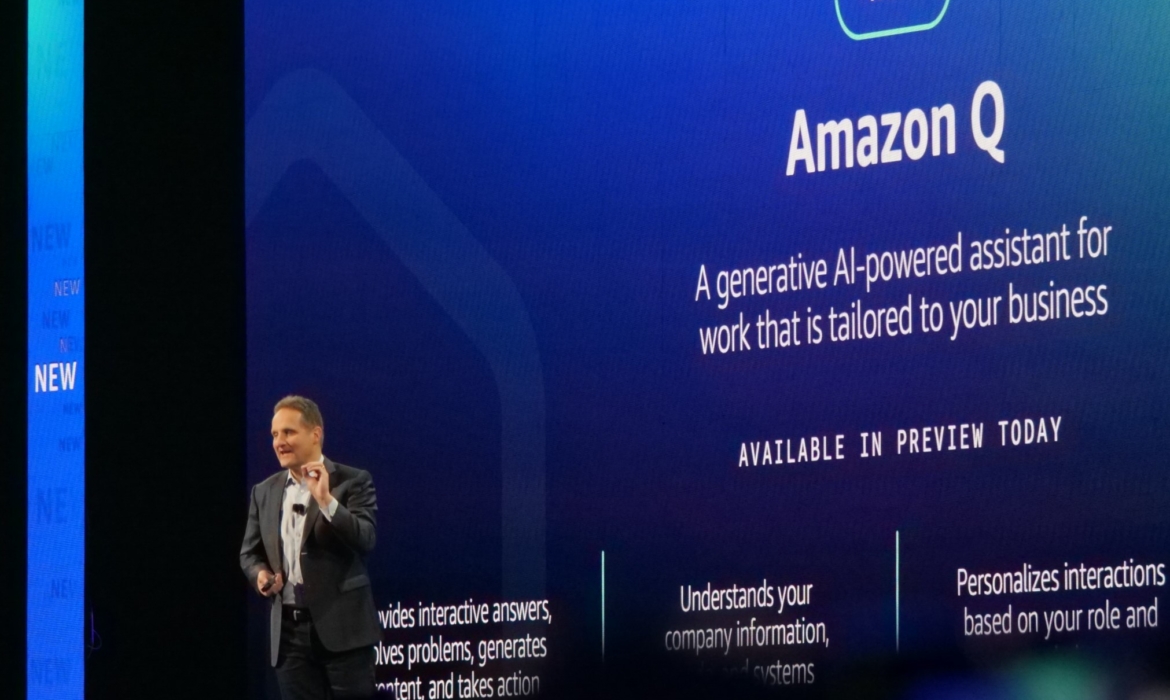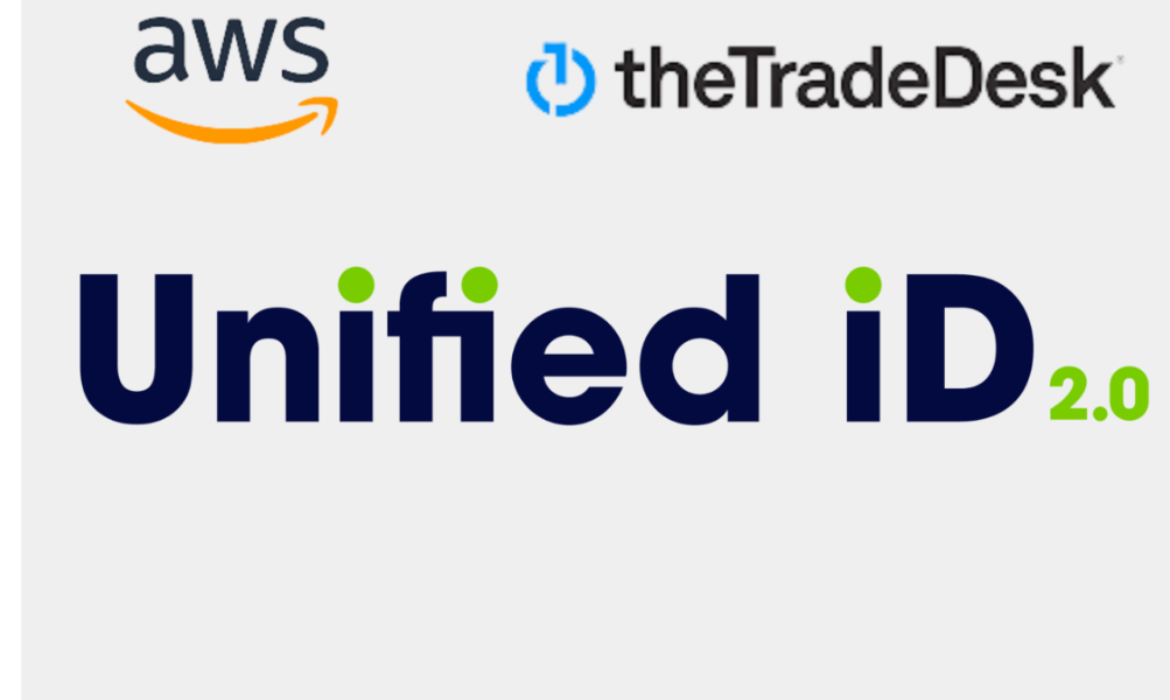Dentsu Expands Partnership With AWS To Scale GenAI Capabilities
Dentsu declared that it has expanded its partnership with Amazon Web Services (AWS) by implementing two essential services. This move will enable Dentsu to employ generative artificial intelligence (GenAI) at a larger scale, resulting in increased innovation and opportunities for its clientele. Dentsu’s complete enterprise-grade GenAI stack is enhanced by new, unique technologies offered by Amazon Bedrock and Amazon SageMaker. Impactful outcomes are already being produced by Dentsu’s AI strategy, which aims to enable the safe and widespread use of tools across the global business for the development of both client-ready products and operational innovations. Dentsu is producing genuine, responsible results with AI-driven client campaigns already in use and the broad adoption of AI-powered tools to improve workflows, drive efficiency, and unleash creativity.
Innovation Acceleration with GenAI
Dentsu will be able to accelerate innovation for its global workforce of over 72,000 workers by implementing GenAI. Dentsu’s product and engineering teams will be able to implement open-source and third-party models more readily and swiftly thanks to the use of Amazon Bedrock and Amazon SageMaker. Dentsu staff now have access to a wide variety of cutting-edge technologies from the outside, international technology community. Amazon Bedrock is a fully managed service that provides a wide range of tools for creating GenAI applications that adhere to Dentsu’s strict security, privacy, and responsible AI guidelines. It also provides a selection of high-performing foundation models from top AI companies via a single API.
Machine Learning Implementation
Dentsu’s data scientists and developers can quickly and easily create, train, and implement machine learning models at any scale thanks to Amazon SageMaker. It consists of modules for building, training, and deploying models that can be used in tandem or separately. As a result, Dentsu’s client teams have unprecedented access to platforms. It enables them to rapidly innovate and prototype at scale, developing new goods and services that will improve client outcomes. Additionally, it gives Dentsu access to best-in-class features for implementing AWS-exclusive models like Amazon Titan. The model offers a variety of highly effective image, multimodal, and text model options.
During a private preview program with AWS, Dentsu Digital, Japan, spearheaded the use of these new services within Dentsu. The team has collaborated closely with Dentsu colleagues worldwide to swiftly apply GenAI to prototypes and upskill and support staff.
Read More: Dentsu India Appointed As BharatBenz’s Integrated Communication Partner
Here’s what they said
Saturo Yamamoto, Dentsu Digital Inc. Executive Officer in charge of AI, said,
Dentsu has been developing multiple AI solutions on AWS, and we continue this tradition with our latest advanced customer experience enhancement service brand ”∞AI (mugen AI)”, some components of which also leverage AWS infrastructure. We have been actively evaluating methods to harness the potential of Amazon Bedrock immediately following its release, intending to integrate these AI capabilities into our service progressively. We eagerly anticipate continuing to contribute to our clients’ growth and transformation through our products, as we have done so far.
Atul Deo, General Manager, Amazon Bedrock added,
Generative AI is one of the most transformational technologies of our lifetime, significantly impacting productivity and creativity. Using Amazon Bedrock, dentsu established new ways of improving productivity that combine technology with the knowledge of local teams. For example, dentsu is able to easily experiment with and evaluate top foundational models for advertising use cases, privately customizing them with their own data securely. This opens up new opportunities for dentsu to become more efficient and cost-effective, whilst increasing team creativity. We look forward to growing our relationship with dentsu in these next years and supporting the development of generative AI-powered tools that enable customers to boost productivity and power innovation.
Read More: Dentsu and Meta Partner for WhatsApp Business Customer Relationships Solution
Amazon Enters Generative AI Scene With Its Chatbot “Q”
Amazon is introducing “Q,” an AI-powered chatbot designed for AWS users. With the release of ChatGPT by OpenAI, Copilot by Microsoft, and Bard by Google, Amazon has now added its new chatbot to its generative AI portfolio. Q is currently in public preview, with annual user fees starting at $20. It can respond to inquiries such as “How do I use AWS to build a web application?” Q is being marketed by Amazon as a novel kind of generative AI-powered assistant that can respond to queries from staff members, produce content, and take action based on company data.
Meet your new #generativeAI assistant designed for work that can be tailored to your business. 💡
With Amazon Q, you can solve problems, generate content, get insights from data, build faster on #AWS, while helping keep your data private & secure. ☁️
🔗 https://t.co/ZKKQs9gzEc pic.twitter.com/4H0xagrgfI
— Amazon Web Services (@awscloud) November 28, 2023
Q- Amazon’s New Generative AI Chatbot
As per Amazon Web Services, Amazon Q helps agents by providing them with instantaneouas feedback and suggested actions to enhance customer satisfaction and promptly attend to customer requirements. Q uses the information supplied by the companies to create content and provide individualized interactions. Its training is based on 17 years of AWS experience. Although Amazon is the industry leader in cloud computing, surpassing competitors Google and Microsoft, it is not thought to be at the forefront of AI research that has produced advances in generative AI. AWS solutions are recommended for apps that run for a few seconds as opposed to minutes or hours, or for apps that access storage very infrequently, which claims that Q can comprehend the subtleties of app workloads on AWS.
Read More: Meta and Amazon Collaborate for In-App Shopping in FB and IG
Amazon Q for Businesses and Agents
Amazon Q can be customized for any kind of business and offers contact center agents new support. The chatbot helps to understand customer intents and leverages pertinent information sources. This aids in providing accurate responses and actions. Moreover, it allows the agent to communicate and address specific customer needs in real-time. Reduced agent training, resolution times, and costs are achieved by enabling agents to handle customer needs on a wide range of subjects without the need for supervisory support. This feature of Amazon Q in Connect improves customer satisfaction and fosters enduring customer relationships. In addition, Q is capable of troubleshooting network connectivity problems and analyzing network configuration to offer corrective actions.
Q Generative AI for AWS Customers
AWS Customers can set up Q by linking it to software and apps that are specific to their organization. These consist of Gmail, Salesforce, Jira, Zendesk, and Amazon S3 storage instances. Q learns the characteristics of a company. They can be its organizational structures, fundamental ideas, and product names, by indexing related data and content. The AI assistant is designed with security and privacy in mind, allowing users to fully control and filter the actions that Q will perform, as well as inspect what Q will do. Users have the ability to approve the content they view, impose restrictions on sensitive subjects, and, when needed, filter out improper questions and responses.
More than just a chatbot
Q is more than just answering a question. The helper is capable of creating or summarizing emails, press releases, and blog entries. Additionally, it performs tasks on the user’s behalf using a variety of adjustable plugins. These include generating support tickets automatically, alerting specific Slack teams, and updating ServiceNow dashboards. Q asks users to review the actions it is going to take before running them. Furthermore, it also provides links to the results for validation in order to prevent errors.
Read More: Omnicom Signs Generative AI Licensing Agreement with Getty Images
Amazon Announces Publisher Cloud to Plan Programmatic Deals in Amazon DSP
Amazon unveiled Amazon Publisher Cloud, a new collaboration tool that lets publishers organize programmatic deals and activate them in Amazon DSP. It is based on the capacity to examine both first-party signals and Amazon Ads insights. AWS Clean Rooms are the foundation of Amazon Publisher Cloud. Publishers and advertisers can collaborate in a privacy-focused manner and utilize interoperability, enhancing customers’ experiences with more pertinent advertising. Moreover, it will support safe and efficient communication between Amazon Ads and its advertiser and publisher partners.
What is Amazon Publisher Cloud?
Amazon Publisher Cloud is included in the group of cloud-based services called Amazon Publisher Services (APS). It assists publishers in creating profitable digital media businesses. Publishers can deliver more relevant ads to their audiences and optimize results with the help of APS’ server-side header bidding solutions and direct-to-publisher supply relationships. APS offers services, infrastructure, and cutting-edge advertising technologies to publishers of connected TV, mobile apps, audio, and websites. As a result, they will be able to generate revenue from their ad-supported content, create unique demand, allow audience-level buying, and obtain a deeper understanding of their own audiences.
Read More: AMC Networks Pioneers Programmatic Ad Buying on Linear Networks
New Clean Room Solution for programmatic deals
Amazon Publisher Cloud is the first and sole clean room solution that allows a publisher to leverage insights from Amazon Ads. It helps in analyzing first-party signals and creating reach-optimized deals. Through a single, efficient workflow, publisher deals are made accessible for activation in Amazon DSP. For example, a publisher can comprehend how its contextual signals match up with in-market Amazon Ads audiences. Amazon Publisher Cloud-based programmatic deals are offered with beta launch partners like DirecTV, Dotdash Meredith, Fandom, NBCUniversal, TelevisaUnivision, and other premium publishers.
APS for publishers
AWS Clean Rooms serve as the foundation for Amazon Publisher Cloud. It offers publishers flexible interoperability. With AWS Clean Rooms, businesses and their partners can analyze and work together on their collective signals more quickly and securely. Furthermore, they can work without having to share or duplicate each other’s underlying datasets. Customers can work with any other business in the AWS Cloud to generate unique insights about advertising campaigns, investment decisions, and research and development. When compared to an unoptimized campaign, Amazon’s Amazon Prime campaign with NBCUniversal via Amazon DSP during the closed beta period reached more than 3.5 times the target audience.
Here’s what they said
Steve Rabuchin, vice president of third-party supply at Amazon Ads said
Amazon Publisher Cloud is purpose-built to provide publishers with durable addressability of their supply. We built Amazon Publisher Cloud to ensure that publishers securely maintain control of their first-party signals with the ability to analyze them alongside Amazon Ads insights, create customized and more effective deals, and easily make them available in Amazon DSP. We’re excited to connect publishers and advertisers and help them deliver more relevant customer experiences.
Read More: GroupM and Amazon Ads Partner for Creator-Led Shoppable Format
ThinkAnalytics’ Contextual Advertising Solution Joins AWS Clean Rooms
The targeted contextual advertising platform ThinkAdvertising from ThinkAnalytics has been made available on AWS Clean Rooms by Amazon Web Services. ThinkAnalytics is a global leader in audience data analytics, AI-based content discovery, and targeted advertising. Publishers may easily enable cross-channel audience segments for programmatic advertising thanks to the solution. Additionally, it enables customers and partners to work together more conveniently and securely while analyzing their shared datasets without revealing or replicating each other’s underlying data.
ThinkAdvertising – a targeted contextual advertising solution
The TV/OTT programmatic ecosystem presents issues for the advertising sector, including signal degradation, data, and privacy rules, and the need for more efficient targeting options. With the use of first-party data, ThinkAdvertising enables video service providers to build behavioral audiences based on content at scale. Additionally, it improves the precision and efficiency of advertising targeting. The approach reduces waste while enhancing performance in the complicated and rapidly changing convergent TV industry. When publishers enable cross-channel audience segments for programmatic advertising, having access to the turnkey data solution on AWS will improve privacy and security.
Read More: Comscore’s Proximic Unveils New AI-Powered Contextual Solutions for Programmatic
ThinkAdvertising on AWS Clean Rooms
When audiences are more responsive, brands may engage them and get better outcomes. This is because real-time audience segments use this technology to track first-party real-time behavioral changes and engagements. Initial customers have had 10x engagement and 20x purchase KPIs.
Here’s what they said
Peter Docherty, Founder and Chief Technology Officer of ThinkAnalytics said,
ThinkAdvertising is leveraging AWS Clean Rooms to guarantee absolute data privacy, providing cross-platform TV companies with a seamless and secure way to convert their first-party data into cross-platform audiences, unlocking significant cost and scalability advantages. Our relationship with AWS simplifies the process for our customers, enabling first-party data to be harnessed for advertising.
Read More: OpenX Launches ConteX: A Flexible, Contextual Advertising Marketplace
Amazon Web Services Partners With Trade Desk’s UID2 To Integrate First Party Data
Amazon Web Services, one of the most popular data hosting services for marketers partners with the Trade Desk’s UID2 (Unified ID 2.0) at the Cannes Lions Festival.
What is UID2?
UID2 is a non-proprietary, open-sourced alternative identifier developed by The Trade Desk and supported by over 40 publishers. It enables advertisers, agencies, ad technology companies, and publishers selling advertising to continue providing relevant, personalized advertising without third-party cookies. It also provides mechanisms for consumer consent with transparency baked in.
Interesting Read: The Trade Desk & Lifesight Partnership: What It Means For Indian Marketers!
What is the partnership about?
AWS will serve as a private operator of UID2 through the partnership. In essence, this means the company will handle its own internal version of UID2 to generate and manage the identity solution. Marketers can match their first-party data via the Amazon web services marketplace to facilitate programmatic ad placement efficiently.
The integration allows Amazon to place programmatic ads without exposing sensitive user data externally since it takes advantage of AWS Nitro Enclaves, a facility it says provides better security for customers’ personally identifiable information.
A second advantage of the pair’s integration is that PII is never directly disclosed to external parties since UID2 identifiers are encrypted into so-called “ephemeral UID2 tokens” that are shared to match users with bid requests. Furthermore, the pair says that PII will never be communicated directly between external parties due to UID2 identifiers being encrypted into non-persistent “ephemeral UID2 tokens,” which are provided to match users with bid requests.
In an emailed statement reported by Digiday, Adam Solomon, worldwide head of data collaboration & interoperability solutions, advertising & marketing tech industry at AWS said,
“One of the key requirements of running a UID2 Private Operator Service is a trusted environment for the UID2 operator application to process users’ private data, such as a user’s phone number or email address so that sensitive data isn’t accessible to other UID2 operators and providers.”
Customers who want to run UID2 workflows in the cloud will not have to do any heavy lifting with this solution. They can easily deploy UID2 Private Operator services with a click of a button in their virtual cloud environment. Solomon further added,
“This is an amazing next step in consumer identity in terms of having a service that both the sell side and buy side can leverage for advertising, targeting, measurement, activation, and planning.”
“This paradigm has important implications in the long run beyond identity that include areas such as analysis, machine learning for measurement — there is a whole host of things we can do. And cloud technologies are enabling this new way of thinking, where you can develop a service and deploy it closer to your customer’s environment. It’s the beginning of not just how we do identity, but of a new way of doing business together.”
AWS joins a handful of other data firms and agency networks—like Snowflake, InfoSum, and IPG—who have signed up to be private operators of UID2 or parties that process identifiable information in a way The Trade Desk deems privacy safe. Amazon Web Services partnership, which will help the cookieless solution gain credibility in a crowded market.
Interesting Read: A Panoramic Perspective Of Amazon’s Advertising Business!






